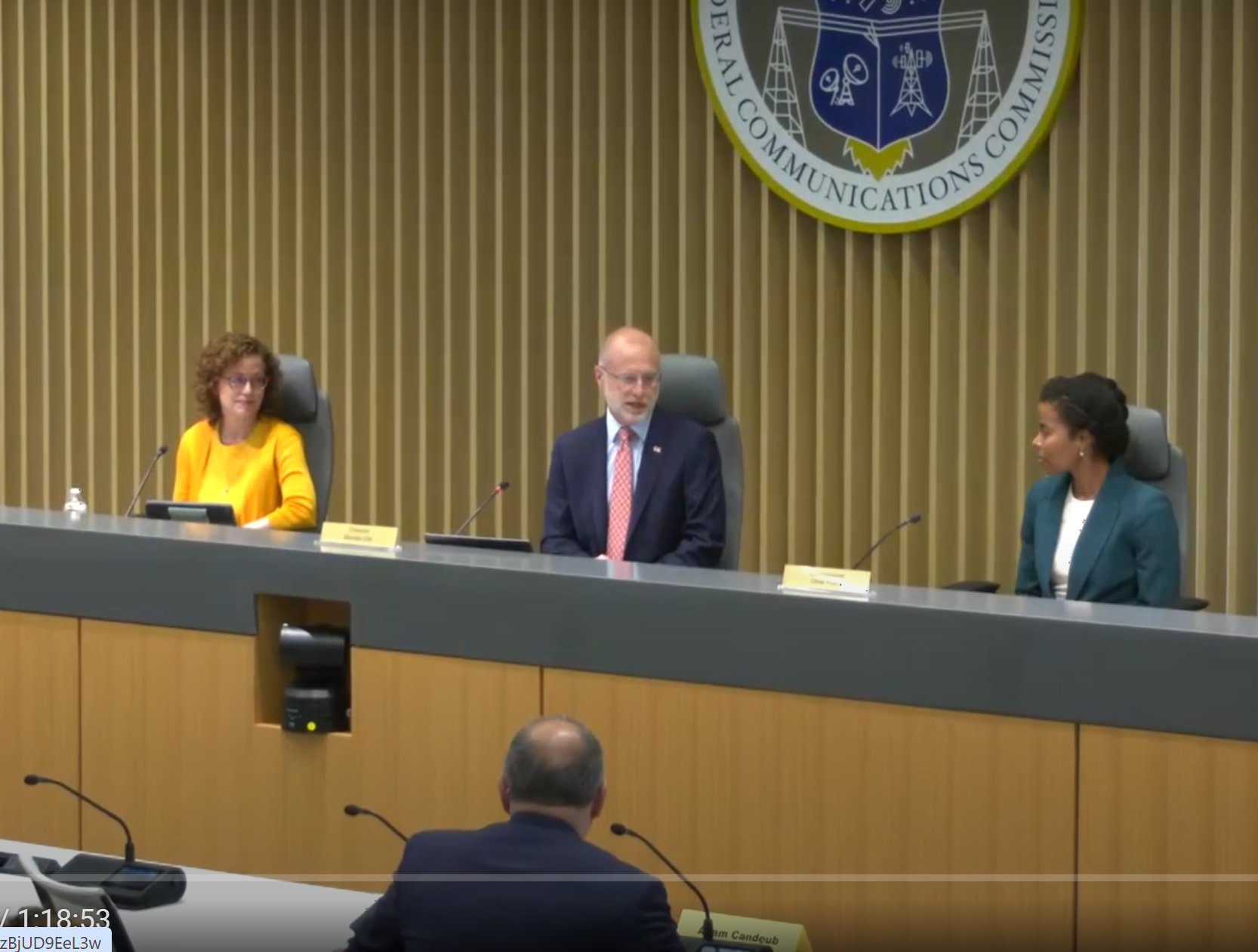UPDATED: FCC Extends Invitation to SBE
WASHINGTON: The FCC has now invited the Society of Broadcast Engineers to its engineering forum Friday. The forum was organized to examine the potential reallocation of television spectrum for wireless broadband. The group was left out of the original guest list, which otherwise includes some of the most well-known engineers in the industry. (See “FCC Broadcast Engineering Forum Agenda.”)
The SBE received an invitation last week after it sent a strongly-wordedletter to FCC Chairman Julius Genachowski, questioning how the agency could hold such a forum and not include the SBE. The Society now said two of its officers will represent the engineering group: Its national vice president and SBE’s representative to the Advanced Television Systems Committee, Ralph Hogan, who is associate general manager of Rio Salado College Division of Public Service in Tempe, Ariz. Joseph Snelson, a member of the SBE national board and vice president and director of engineering for Meredith Broadcast Group has also been invited.
“We look forward to Friday’s event and our opportunity to have input and review of the process first-hand,” said SBE President Vinny Lopez in an e-mail to members that was shared with Radio World. Four workshops that begin Friday morning will be reviewed in public panel discussions from 3 to 6 p.m. Coverage of the live portion will be available online.
Engineers from telecom carriers, Harris Broadcast as well as several consulting engineering groups, television broadcasters, NAB and CEA are participating.-- from Radio World
Dissed Broadcast Engineers Slam FCC
(June 17, 2010) WASHINGTON: How can you have a broadcast engineering forum and not invite the Society of Broadcast Engineers?
That’s what the SBE is wondering. It has sent a blistering letter to Federal Communications Commission Chairman Julius Genachowski, signed by the society’s president, Vinnie Lopez, expressing “dismay and serious concern” over the planned June 25 FCC Broadcast Engineering Forum.
The FCC set up that forum in support of possible rulemakings involving the broadcast television bands resulting from the National Broadband Plan’s reallocation of spectrum. At the time, the commission said it had “invited a number of broadcast industry engineers and technical experts in related fields” to meet.
“While the SBE does not summarily oppose discussion and resolution of a viable and reasonable plan to make broadband services more available,” the society now says in a press release distributed along with a copy of the letter, “the society is suspicious of the process that seems to have already made its own conclusions; as evidenced by the recent disclosure of the report ‘Spectrum Analysis: Options for Spectrum OBI Technical Paper No. 3.’
“There seems to be a thinly veiled purpose in this meeting,” the SBE continued, “to co-opt broadcast television ownership in the FCC's plan to reclaim and reallocate 120 MHz of free broadcast television spectrum for broadband services allocated by auction; likely exchanging over-the-air television reception which is free to the public for subscription-based services similar to those offered by cellular and telecom providers.”
In the open letter to Genachowski, Lopez wrote that it appears “the broadcast owners are being represented on this panel, but not broadcast engineers.” He also complained that the forum had been set up with little more than two weeks’ notice, and that the SBE was turned away when it sought to participate as an organization.
At best, the FCC staff didn’t handle the planning of the event well, Lopez said. “At worst, it appears that the participants in the panel were chosen in order to provide the commission with the appearance of an industry consensus, evidencing a predetermined outcome,” namely the reclamation of a big chunk of TV spectrum.
He further criticized the commission for not making public the working group sessions, finding that to be contrary to promises of openness and transparency that have been made by the Genachowski FCC and the Obama administration. “Candidly, we expected better,” he wrote.
Lopez urged the FCC to open the event to the public and/or postpone it. -- Radio World
The professional video industry's #1 source for news, trends and product and tech information. Sign up below.
